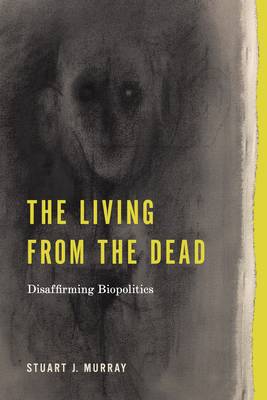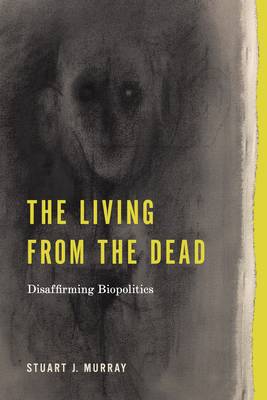
- Afhalen na 1 uur in een winkel met voorraad
- Gratis thuislevering in België vanaf € 30
- Ruim aanbod met 7 miljoen producten
- Afhalen na 1 uur in een winkel met voorraad
- Gratis thuislevering in België vanaf € 30
- Ruim aanbod met 7 miljoen producten
Omschrijving
In a society that aims above all to safeguard life, how might we reckon with ethical responsibility when we are complicit in sacrificial economies that produce and tolerate death as a necessity of life?
Arguing that biopower can be fully exposed only through an analysis of those whom society has "let die," Stuart J. Murray employs a series of transdisciplinary case studies to uncover the structural and rhetorical conditions through which biopower works. These case studies include the concept of "sacrifice" in the "war" against COVID-19, where emergent cultures of pandemic "resistance" are explored alongside suicide bombings and military suicides; the California mass hunger strikes of 2013; legal cases involving "preventable" and "untimely" childhood deaths, exposing the irreconcilable claims of anti-vaxxers and Indigenous peoples; and the videorecording of the death of a disabled Black man. Murray demonstrates that active resistance to biopower inevitably reproduces tropes of "making live" and "letting die." His counter to this fact is a critical stance of disaffirmation, one in which death disrupts the politics of life itself.
A philosophically nuanced critique of biopower, The Living from the Dead is a meditation on life, death, power, language, and control in the twenty-first century. It will appeal to students and scholars of rhetoric, philosophy, and critical theory.
Specificaties
Betrokkenen
- Auteur(s):
- Uitgeverij:
Inhoud
- Aantal bladzijden:
- 218
- Taal:
- Engels
- Reeks:
Eigenschappen
- Productcode (EAN):
- 9780271093413
- Verschijningsdatum:
- 20/09/2022
- Uitvoering:
- Hardcover
- Formaat:
- Genaaid
- Afmetingen:
- 152 mm x 229 mm
- Gewicht:
- 489 g

Alleen bij Standaard Boekhandel
Beoordelingen
We publiceren alleen reviews die voldoen aan de voorwaarden voor reviews. Bekijk onze voorwaarden voor reviews.









